The Icelandic horse, sometimes referred to as the Icelandic Pony, is a unique equine breed celebrated for its exclusive attributes and multipurpose utility. This breed boasts an impressive lineage dating back over a millennium. Its origins are deeply linked with the Icelandic settlement led by the Vikings. As the Vikings made their incursion into Iceland during the 9th and 10th centuries, they introduced horses hailing from various Scandinavian and European territories. These horses, including notable breeds like the Norwegian Fjord horse and the Irish Hobby, constituted the genetic groundwork of the Icelandic horse breed.
Isolation played a crucial role in shaping the breed. Iceland’s geographical location, surrounded by the Atlantic Ocean, contributed to the breed’s isolation from other horse populations. Over time, strict import restrictions were put in place to preserve the breed’s purity. These measures have been successful, resulting in a breed that remains true to its ancient ancestors.
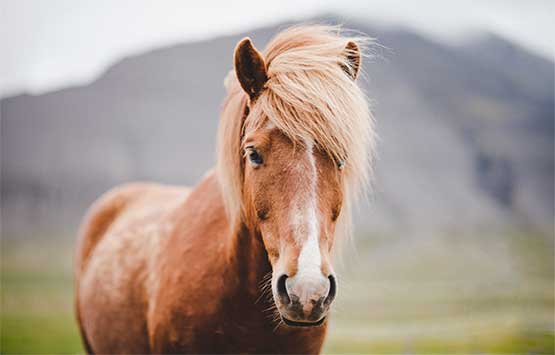
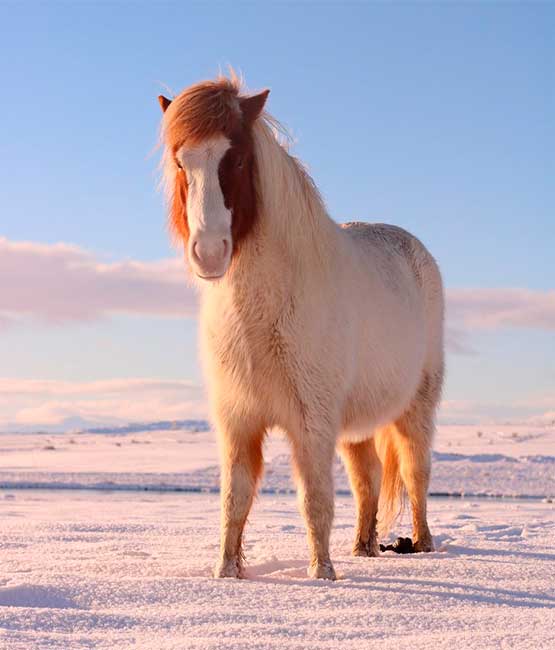
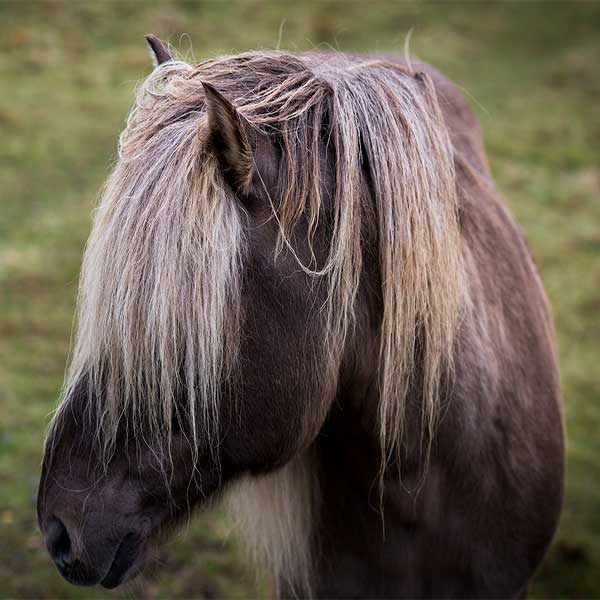
Distinctive Features of Icelandic Horses
Icelandic horses possess several distinctive features that set them apart from other breeds. They are known for their compact size, with an average height ranging from 12 to 14 hands. Despite their small stature, horses have a sturdy build and robust conformation, allowing them to carry adult riders comfortably.
One of the most notable features is their unique gaits. In addition to the walk, trot, and canter/gallop, Icelandic horses have two additional gaits: the tölt and the flying pace. The tölt is a four-beat lateral ambling gait characterized by smoothness and speed. It is highly valued by riders for its comfort and efficiency. The flying pace, on the other hand, is a two-beat lateral gait in which the horse moves both legs on one side of its body simultaneously. This gait can reach impressive speeds, making it exhilarating to watch and ride.
Another remarkable feature of these horses is their thick double coat, which allows them to thrive in Iceland’s harsh and unpredictable climate. The outer layer, known as the tog, consists of long, coarse hair that protects the horse from wind and moisture. The inner layer, called the thel, is soft and insulating, providing warmth during cold winters. This double coat, combined with the breed’s natural hardiness, makes Icelandic horses exceptionally adaptable to extreme weather conditions.
Characteristics of Icelandic Ponies
Icelandic Ponies are typically smaller in size compared to Icelandic horses. They generally measure under 13.2 hands in height, which is equivalent to 54 inches or 137 cm. This smaller stature is often preferred by young riders or those seeking a compact mount.
Even though they are petite in stature, Icelandic Ponies display a multitude of attributes akin to their larger equivalents. They carry the same distinguishing characteristics, which include a dense dual-layered coat, sturdy structure, and distinctive locomotion patterns. The behavioural traits and disposition of Icelandic Ponies parallel those of Icelandic horses. They are recognized for their mild-mannered nature and exceptional intellect.
Characteristics and Behavioural Traits
Icelandic horses are renowned for their gentle and friendly nature, making them a popular choice for riders of all ages and experience levels. They are known for their willingness to please and their calm demeanour. These horses have a reputation for being good-natured, reliable, and easy to handle, making them suitable for both novice and experienced riders.
In addition to their amiability, horses possess high intelligence and trainability. They are quick learners and readily respond to gentle and consistent training methods. This intelligence, combined with their natural athleticism, allows Icelandic horses to excel in various equestrian disciplines, including dressage, endurance riding, and even jumping.
Another endearing quality of this breed is its strong bond with humans. They are known to form deep connections with their owners and riders, often displaying a remarkable level of loyalty and trust. This bond between horses and humans is one of the reasons why these horses are cherished by their owners and riders.
Versatility and Uses of Icelandic Horses
The Icelandic breed is incredibly versatile and can be found participating in a wide range of equestrian activities. They are well-suited for leisure riding, providing a comfortable and enjoyable experience for riders. Their smooth gaits, especially the tölt, make long trail rides a pleasurable and effortless endeavour.
Furthermore, Icelandic Horses have a rich history of traditional uses. In Iceland, they were historically utilized for herding sheep, cattle, and other livestock. Their surefootedness and agility made them invaluable in navigating the rugged Icelandic terrain. Additionally, horses were used for transportation, serving as reliable mounts for farmers and travellers.
In recent years, the Icelandic breed has gained popularity in various equestrian disciplines and competitions. They excel in dressage, where their versatile gaits and natural collection are highly prized. Icelandic horses also showcase their skills in gæðingakeppni, a competition that evaluates their tölt and other abilities. These competitions provide an opportunity for riders to showcase the breed’s unique qualities and their own horsemanship.
Icelandic Horses in Canada
The Icelandic horse has found a thriving community of enthusiasts in Canada. The breed was first introduced to Canada in the late 1950s, primarily through imports from Iceland and Europe. Since then, their breeding programs have been established across the country, contributing to the breed’s growth and popularity.
Canada is home to several notable Icelandic horse breeders and trainers who have made significant contributions to the breed. These dedicated individuals have worked diligently to maintain the breed’s purity and preserve its unique qualities. Their efforts have helped establish a strong foundation for the Icelandic community in Canada.
To foster camaraderie and support among Icelandic horse enthusiasts, communities and clubs have been established. The Chilliwack Riding Club, located in British Columbia, is one such example. These clubs organize events, clinics, and shows, providing opportunities for riders and owners to come together, share their passion for horses, and expand their knowledge.
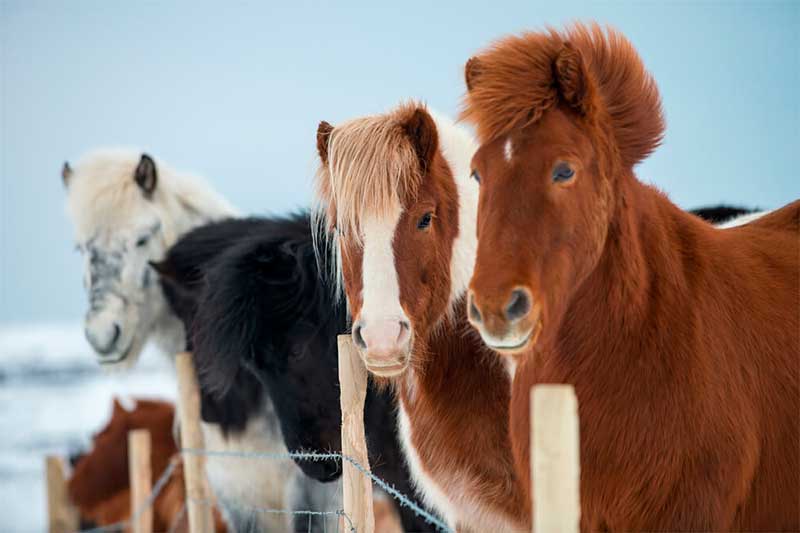
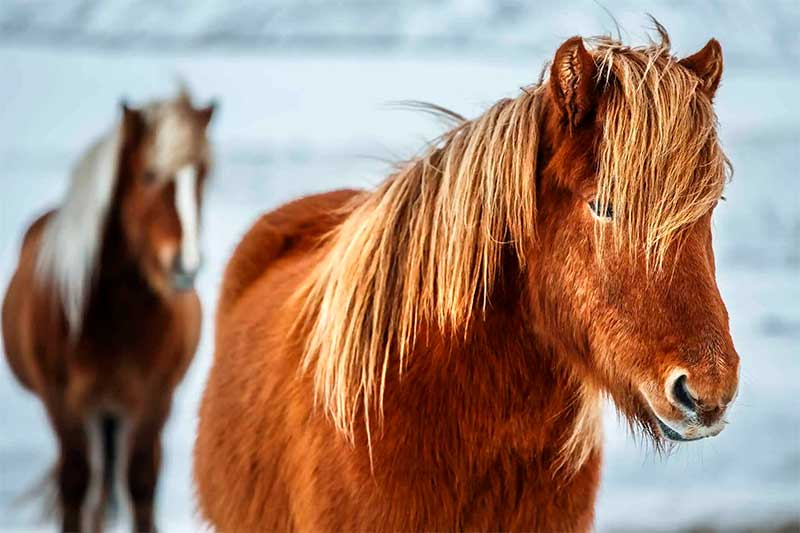
Availability and Sales of Horses
In Canada, there are numerous breeders offering Icelandic Horses for sale. These breeders focus on maintaining the breed’s purity and adhering to strict breeding standards. Potential buyers can find horses of various ages, colours, and training levels to suit their preferences and needs.
Websites and online platforms dedicated to the buying and selling of horses provide convenient avenues for prospective owners to connect with breeders and explore available Icelandic horses. Some popular platforms in Canada include EquineNow, HorseClicks, and Kijiji. These platforms often feature detailed listings with information about the horse’s lineage, training, and temperament, helping buyers make informed decisions.
For those specifically searching for Icelandic horses for sale in the Vancouver Island area, there are several options to explore. Horse enthusiasts can visit local equestrian events, check classified ads in horse-related publications, or connect with horse breeders and trainers in the region.
Unique Challenges and Care Requirements
Preserving the purity and genetic diversity of the Icelandic horse breed is an ongoing challenge. Breeders and enthusiasts must carefully manage breeding programs to maintain the desired characteristics while avoiding inbreeding. This requires extensive knowledge of bloodlines and diligent record-keeping.
Like any other breed, these horses have specific health considerations. They are generally a hardy and healthy breed, but they can be prone to certain ailments. Conditions such as laminitis, sweet itch, and dental issues can affect Icelandic Horses. Regular veterinary care, including vaccinations, dental examinations, and parasite control, is essential to ensure their well-being.
Bridging Passion with Play: Horse Betting in Online Casinos
For enthusiasts who not only admire horses for their beauty and grace but also enjoy the thrill of racing, the world of online casinos offers an exciting avenue to engage with horse betting. Online casino strategies for horse betting can enhance the experience, providing a way to apply your knowledge of horses and racing dynamics in a new context. From understanding odds to evaluating horse performance, the strategies used in online casinos can make the process both fun and potentially rewarding.
Just as selecting the right horse requires careful consideration, choosing the right online casino and betting strategy is crucial. For those interested in exploring horse betting online, we recommend familiarizing yourself with the basics of online casino strategies. This will not only enhance your betting experience but also offer a new way to engage with the sport and animals you love. Check for a guide to getting started with online casino strategies.
Care Tips for Icelandic Horses
Proper care is essential for ensuring the well-being and health of Icelandic Horses. Here are some brief and exclusive care tips to keep in mind:
- Shelter and Turnout: Provide a suitable shelter to protect Icelandic Horses from extreme weather conditions. Ensure access to a well-fenced pasture or paddock for regular turnout and exercise.
- Feeding: Feed a balanced diet consisting of quality forage, such as grass or hay, supplemented with appropriate concentrates if necessary. Consult with a veterinarian or equine nutritionist to determine the specific nutritional needs of your Icelandic Horse.
- Grooming: Regular grooming is important to maintain the health of the thick double coat. Brush the coat regularly to remove dirt, debris, and tangles. Pay attention to the mane, tail, and feathered areas, ensuring they are kept clean and free from mats.
- Hoof Care: Schedule regular hoof trims with a professional farrier to maintain proper hoof health and prevent issues such as overgrowth or cracks. Consider using hoof boots or shoes if needed, especially when riding on rough or abrasive surfaces.
- Vaccinations and Deworming: Follow a proper vaccination schedule recommended by your veterinarian to protect your Icelandic Horse from common diseases. Establish a deworming program to control internal parasites and consult with your veterinarian for the most appropriate deworming protocol.
- Regular Veterinary Check-ups: Schedule routine veterinary check-ups to monitor the overall health and well-being of your Icelandic Horse. Address any health concerns promptly and follow veterinary recommendations for preventive care and treatments.
- Exercise and Mental Stimulation: Ensure your Icelandic Horse receives regular exercise to maintain physical fitness and mental stimulation. Incorporate a variety of activities, such as riding, groundwork, or trail rides, to keep your horse engaged and happy.
- Water and Hydration: Provide clean, fresh water at all times to keep your Icelandic Horse properly hydrated. Monitor water consumption, especially during hot weather or periods of increased physical activity.
Intriguing Aspects of Icelandic Horses
The Icelandic horse has mesmerized individuals globally with its distinctive traits and captivating lineage. Here are some compelling particulars about this breed:
- This breed is celebrated for its five inherent gaits: the walk, trot, canter/gallop, tölt, and flying pace. This broad repertoire of movements renders them a versatile asset highly coveted within the equestrian world.
- Iceland hosts an extensive population of these horses, boasting an impressive ratio of approximately one horse for every trio of its inhabitants.
- The Icelandic horse breed is recognized as one of the most ancient and uncontaminated equine breeds globally, owing to stringent breeding guidelines and the insular nature of Iceland’s equine population.
Their adaptability to the rugged Icelandic landscape makes them a preferred choice for cinematic and television productions filmed within the Icelandic borders.
